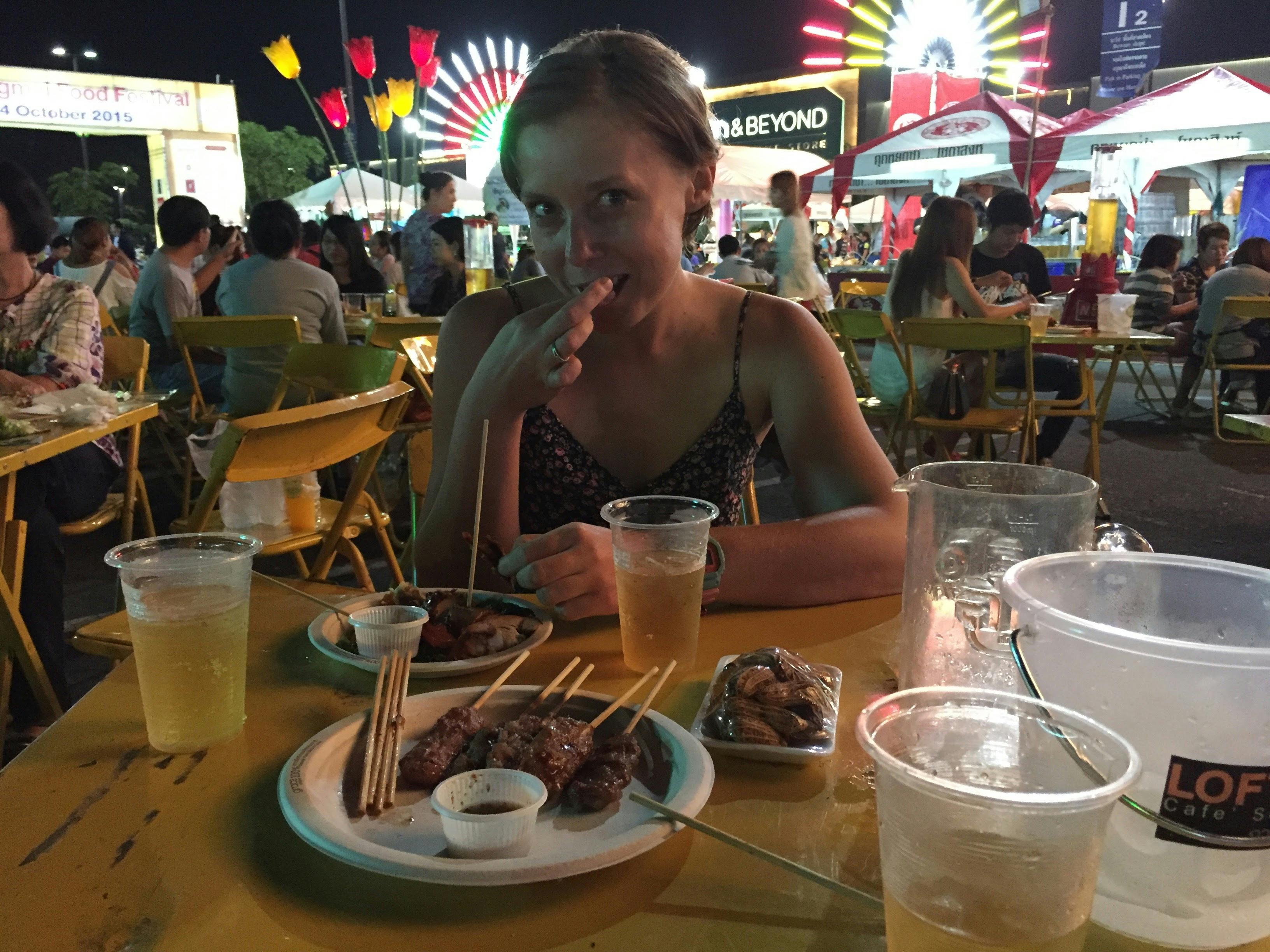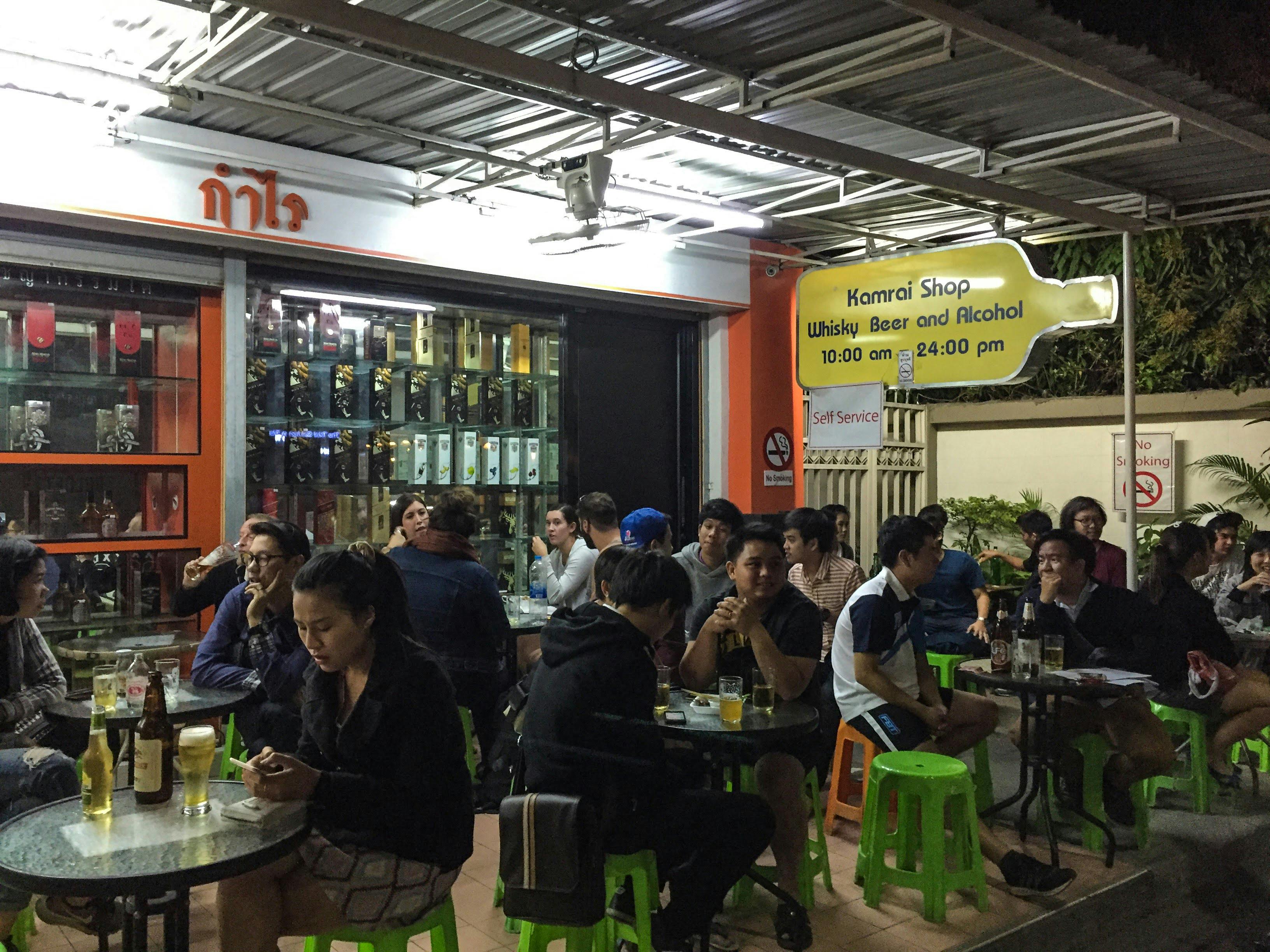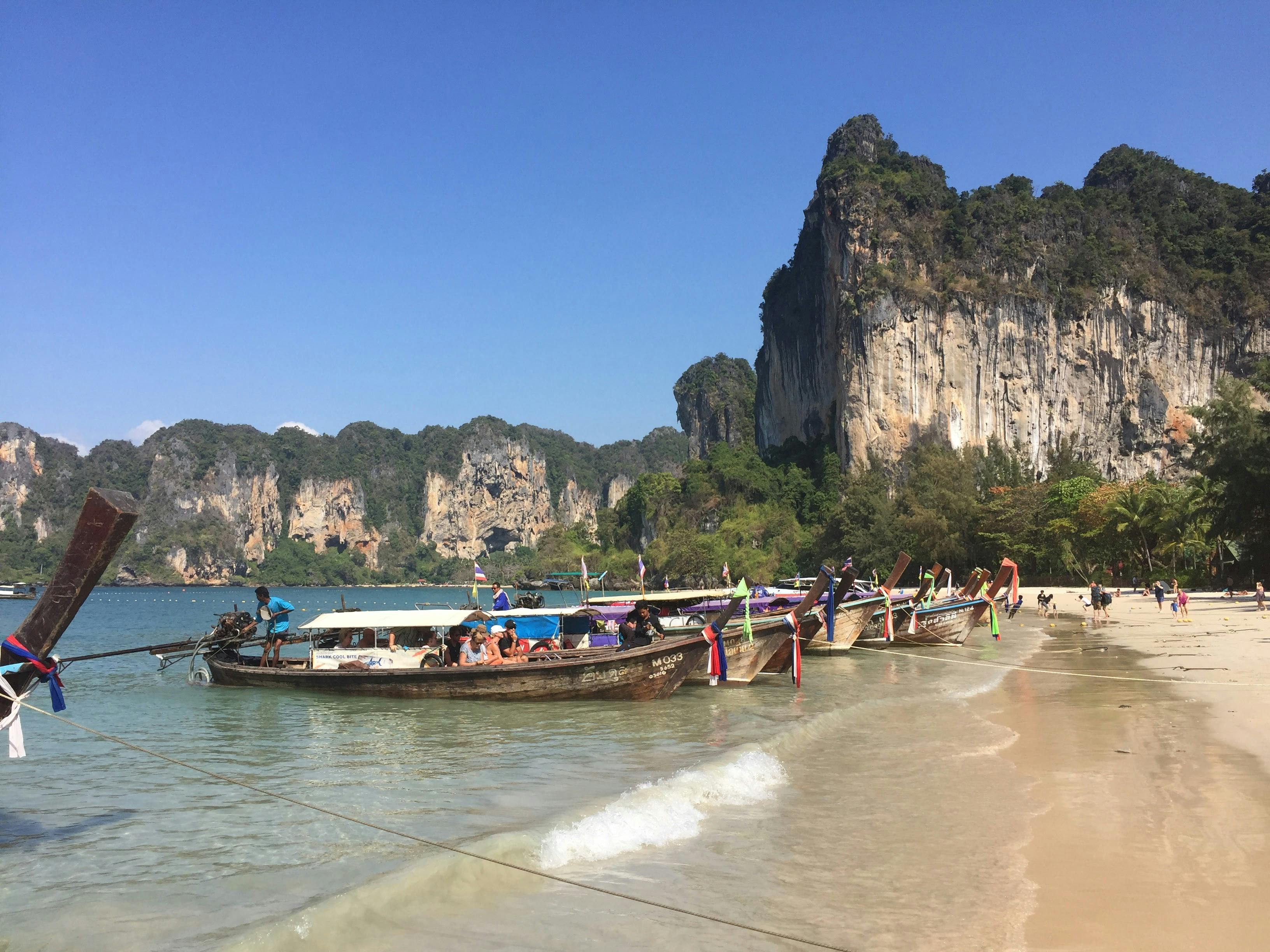
Travel
Travel Healthy: Look after yourself and enjoy your trip
Joanna Horanin
Hi, I'm Joanna, the author of The Blond Travels. In the worlds of Thailand and Portugal, I feel like a fish in water - and it's no coincidence! I've been exploring Thailand for over a decade, and I've settled in Portugal for 6 years now. My mission is to support Dreamers - just like you - in discovering these fascinating countries and helping those in love with them find their own place on Earth, preferably for good! Let's uncover these unique corners of the world together.
Would you like to stay healthy when you travel? It’s not that difficult! Buy good travel insurance and stick to this basic advice.
When you first set off on your travels, you might be really concerned about your health. Today’s world is amazing, but there are things that you need to look after, take care of if you want to go back home healthy and happy with some beautiful memories. I’m pretty sure that this will happen, but quite a lot depends on you.
I must admit, I’m a hypochondriac. When I first set off on my travels to Thailand a majority of my backpack consisted of medicines. I took antibiotics, creams for different rashes, antihistamines, tablets to prevent diarrhoea, to cure it and to help me recover from it. I bet that if I had removed these medicaments from my luggage it would have weighed much less. Today, after travelling so much and living abroad for over 2 years I know how not to get sick, what to do if I fall ill and what to pack to stay healthy on the road and today I want to share some of my knowledge with you. I hope it will help you to travel healthy and happy.
Travel healthy – What to do to look after yourself when you travel
Below I have put some advice for you. It is all based on my experiences and, unfortunately, on my mistakes. I’ve written it for you, so you don’t need to suffer like I did.
Insure yourself
First thing you need to think of is your travel insurance. Travelling without it is not the best idea. Healthcare in countries like Thailand, or Peru, might be cheap, but if you have a serious accident and need to stay in a hospital for a while, the cost will grow to unbelievable amounts and, let’s face it, when you’re far away from home, in a foreign country, where you don’t understand the language, you want to get the best care possible.
Travel insurance is usually cheap. I have used many companies before. As a beginner digital nomad I started from World Nomads, which cost me around $300 per year. It wasn’t much and I thought they provided a good service.
At the moment I use SafetyWing, which is also a travel medical insurance for nomads and people who travel often.
If you happen to live abroad, you will probably have to talk to your insurance provider. Sometimes medical insurance also offer travel insurance.
Check out my post about insurance for expats in Thailand.
Pack a few things
I know you want to travel healthy, but don’t go overboard like me and pack half a pharmacy. Few essentials should be enough: Plasters, tablets to fight that unfortunate travellers diarrhoea and any medications that you take on a regular basis. From my experience most of the things are usually available from pharmacies and at hospitals all over the world.
Eat at small, local restaurants and stay healthy
Part of the experience of being in a new country is trying new food. And nowhere does it taste better than in small, local eateries or bought from a street vendor. Many first time travellers are reluctant to eat at those places because of fear of catching a stomach bug, so they eat at more expensive restaurants. This is a mistake. Quite often these fancy looking places with beautifully prepared food have kitchens at the back that are no different from kitchens you will see at the cheap local bars. I have seen it so many times in Laos and other countries: A beautifully looking restaurant with traditional decor and a kitchen at the back yard, where the staff washes the dishes in a bowl of dirty water.
From my experience food is always better in small, local eateries. If you see that the place is full of locals, you can be sure that it’s safe to eat there and the food is probably good.

If you buy something from a street vendor, make sure that it’s freshly prepared and not previously fried, put on display and then fried again.
Truth to be told, you can be as careful as it gets, but if you really want to have a great experience and get to know the country and culture it is better to be a little bit more adventurous and try as many things as you can. And if you are worried about tummy problems, check out my post about how to fight a nasty stomach bug when you travel.
What about ice and water?
When I first came to Thailand I drank everything without ice. I had read so many warnings about water and ice in Asia that I was really scared of catching a bug, but after a few days I gave up. Drinking a warm smoothie in 40 degrees heat is not very satisfying. Nothing happened to me, nor to my stomach. I was perfectly fine, even after sucking on ice cubes during one of those really hot days.
I usually read about drinks and food before my trip. Usually you will find the information on wether the ice is safe to have or not online. I also have my own theory about it: if I see that in a particular country the ice is transported in big blocks on carts and trucks and then crashed by vendors with metal hooks then it’s probably not safe to have. You should be careful with it in countries like India, or Cambodia. However, remember that no country that receives a lot of tourists want to make their guests sick and bars try to keep their ice as safe as possible to drink.

Don’t forget to stay hydrated if you do a lot of activities, especially if you are in a tropical climate. It is healthy to drink 6-8 glasses of water every day, and if you are in a country where the temperatures exceed 30 degrees you need to drink more.
Never drink tap water. Even in England I avoided it. It is better to buy some bottled water. In Asia it is also sealed with a plastic wrap, so you know it hasn’t been refilled. In countries such as India you shouldn’t even brush your teeth with tap water.
There’s really no way to protect your stomach
You have to face it: at one point or another you will get diarrhoea. Quite often an upset stomach is not only a result of eating something that went bad. It’s just a reaction of your body to the new environment. No matter what you do and how careful you are, there is always a chance of catching a bug. In that case, there are simple ways to fight a traveller’s diarrhoea. Remember to stay hydrated and drink lots of water, take some of those tablets you brought from home and get a lot of rest. Eating bananas and peanuts is apparently also helpful. If your diarrhoea persists longer than 3-4 days seek medical help.
Look after your skin
Travel healthy is not only about your digestion. It’s also about your skin. I used to be a ‘tanning freak’. When I was younger I would go to the beach and use baby oil to get tanned. I thought that sun creams were for the weak. Now I am 35 and I regret doing it not only because my skin is covered with moles and freckles, but also because last year I needed a minor procedure to have one of the moles removed in Thailand. Fortunately the cancer I was diagnosed with was non invasive, but I learned my lesson.

Always apply sunscreen when you’re in a hot country. Try to protect yourself from the sun as much as possible. If you really want to lay on a beach and get brown skin then tan slowly and gradually by exposing yourself to the sun after 2pm.
I also have some good advice on how to survive summer in Lisbon, which can be applied to other countries, too.
Take it easy
Sightseeing can be exhausting and being in a totally new country can be stressful at times. It is best to get some rest once in a while: read a book in a coffee shop, take naps, eat well and stay away from traffic and noise. Partying is great, but if you overdo the alcohol and stay up late every day it will take its toll on your health eventually. Take it easy and enjoy your holiday!
So, that’s it – all the advice I can think of on how to travel healthy and enjoy yourself as well. It’s not that difficult, right. Sticking to these simple rules will make your holidays so much easier. Just remember to buy travel insurance first! Take care of yourself! Happy travels!
Do you have any questions? Would you like to share your experiences or your point of view? Don’t be shy! Leave a comment!
This post might include affiliate links, which means that if you buy something through them, I will get a commission with no extra costs to you.